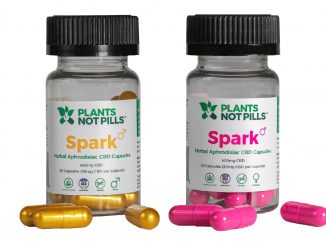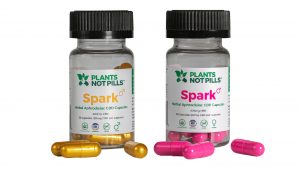Female Aphrodisiac - References & External links
The references to scientific articles about Female Aphrodisiac are not meant to imply that any products treat, cure, or diagnose any disease or human condition. We encourage our audience to do their own research beyond the resources we have provided so your decision is as educated as possible.
- The properties of Cannabinoid as a Female Aphrodisiac:
- GORZALKA, Boris B.; HILL, Matthew N.; CHANG, Sabrina C. H. Male-female Differences in the Effects of Cannabinoids on Sexual Behavior and Gonadal Hormone Function. Hormones and behavior, 2010, 58.1: 91-99. PMID:19733173
- The properties of Lepidium Meyenii as a Female Aphrodisiac:
- STOJANOVSKA, Lily; et al. Maca Reduces Blood Pressure and Depression, in a Pilot Study in Postmenopausal Women. Climacteric, 2015, 18.1: 69-78. PMID:24931003
Conclusions: Maca did not exert hormonal or immune biological action in the small cohort of patients studied; however, it appeared to reduce symptoms of depression and improve diastolic blood pressure in Chinese postmenopausal women. Although results are comparable to previous similar published studies in postmenopausal women, there might be a cultural difference among the Chinese postmenopausal women in terms of symptom reporting.
- STOJANOVSKA, Lily; et al. Maca Reduces Blood Pressure and Depression, in a Pilot Study in Postmenopausal Women. Climacteric, 2015, 18.1: 69-78. PMID:24931003
- The properties of Tribulus Terrestris as a Female Aphrodisiac:
- AKHTARI, Elham; et al. Tribulus Terrestris for Treatment of Sexual Dysfunction in Women: Randomized Double-Blind Placebo - Controlled Study. DARU Journal of Pharmaceutical Sciences, 2014, 22.1: 40. PMID:24773615
Conclusions: Tribulus terrestris may safely and effectively improve desire in women with hypoactive sexual desire disorder. Further investigation of Tribulus terrestris in women is warranted.
- AKHTARI, Elham; et al. Tribulus Terrestris for Treatment of Sexual Dysfunction in Women: Randomized Double-Blind Placebo - Controlled Study. DARU Journal of Pharmaceutical Sciences, 2014, 22.1: 40. PMID:24773615



























































